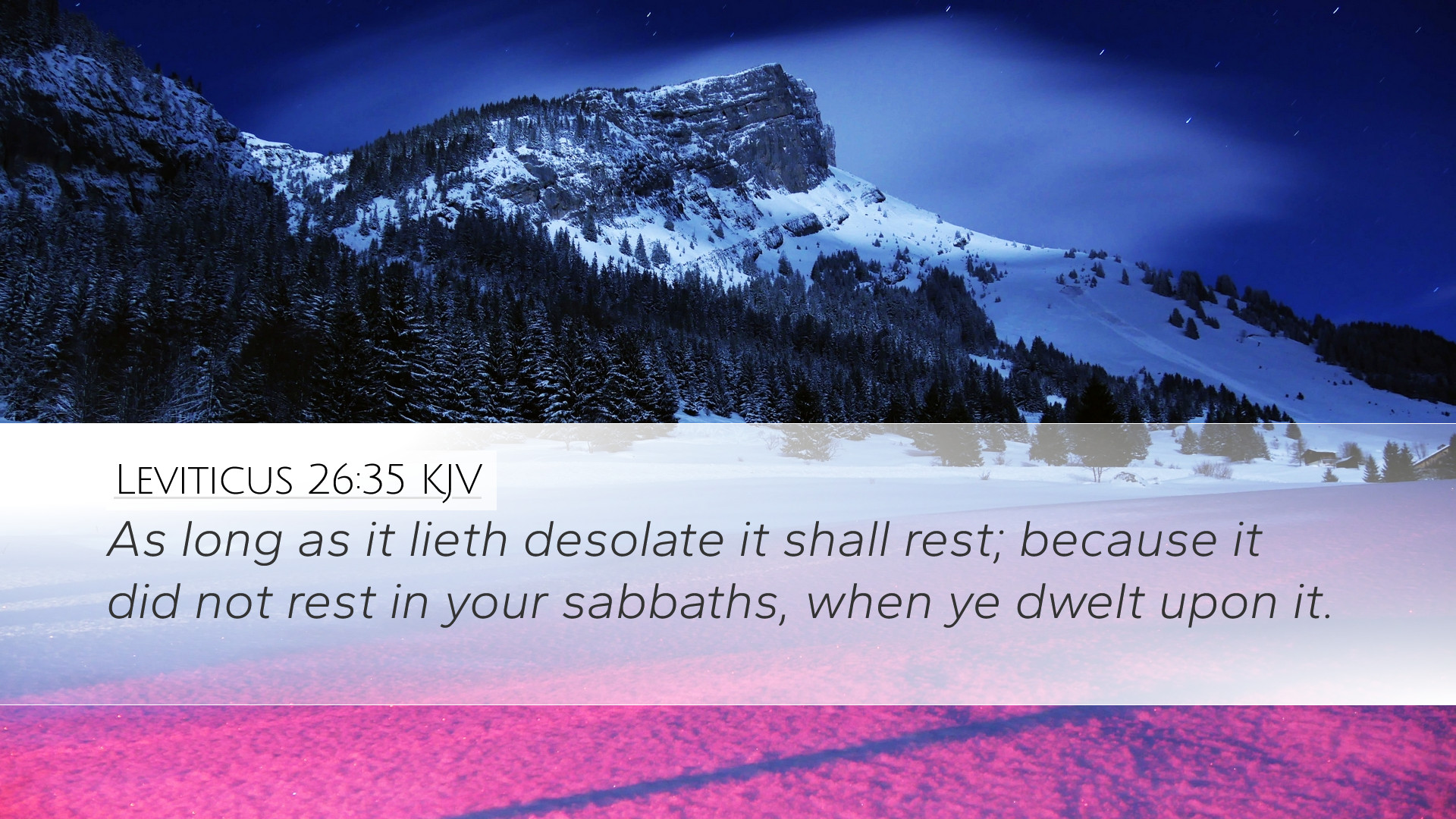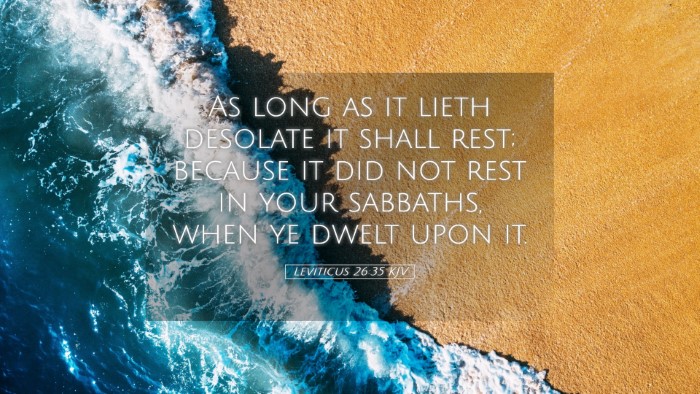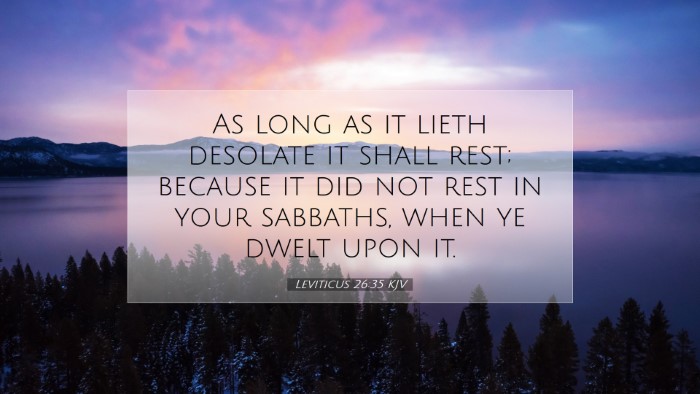Commentary on Leviticus 26:35
Verse: "And as long as it lieth desolate it shall rest; because it did not rest in your sabbaths, when ye dwelt upon it." - Leviticus 26:35
Contextual Overview
This verse is part of a larger section where God outlines the consequences of disobedience to His commandments, particularly concerning the sabbath and the land's rest. The land of Israel holds not just a physical significance but a theological one, representing God's covenant with His people.
The Importance of Sabbaths
Matthew Henry emphasizes the necessity of observing sabbath rest, stating that the land's desolation is a direct result of the people's failure to uphold this divine mandate. The sabbath is not merely a day of rest but an indication of trust in God’s providence.
Albert Barnes notes that these sabbaths serve as reminders of the creation and the covenant between God and His people. The neglect of such observances shows a broader spiritual neglect, leading to dire consequences.
Theological Implications
Adam Clarke discusses the theological implications of this desolation. When the people disregard God's commands, they sever their relationship with Him, resulting in a lack of divine blessing. The land, which should be flourishing, becomes desolate as a testimony of their estrangement from God.
Historical Application
This verse reflects on the sad reality observed in Jewish history; as they often turned away from God's laws, the land suffered. Matthew Henry provides insight into how exiles from their homeland and periods of captivity align with the fulfillment of this prophecy. The land lay fallow as a testament to their negligence and disobedience.
Albert Barnes draws parallels to historical contexts, suggesting that this principle of divine justice applies throughout the ages. Nations and communities that forsake divine mandates may encounter similar fates of desolation.
Contemporary Reflection for Believers
For contemporary readers, the implications of Leviticus 26:35 go beyond agricultural law. It challenges modern believers to consider their spiritual practices and communal obligations to uphold God's commandments.
Adam Clarke prompts reflection on the significance of rest in today's fast-paced society. He encourages churches and individual believers to engage in regular times of pause and reflection, paralleling the concept of sabbath rest to spiritual health.
Conclusion
The echo of Leviticus 26:35 serves as a poignant reminder of the importance of obeying God's commandments and the consequences of neglecting those divine edicts. The collective responsibility of a community, especially in their spiritual walk, can lead to either flourishing or desolation.
As Matthew Henry, Albert Barnes, and Adam Clarke agree, the physical state of the land is symbolic of the spiritual state of the people. Modern believers are urged to take this lesson critically, ensuring that they foster a relationship built on obedience, trust, and regular spiritual practices.


